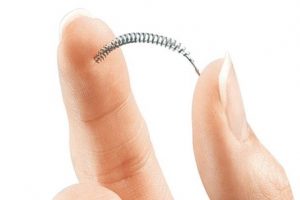The FDA recently updated their ongoing safety review of the birth control device, Essure. In the last two years, the FDA received over 10,000 reports of injuries and 30 deaths from the device. This is just the small amount actually reported to the agency. Statistics have shown that many neglect to report adverse events to the FDA. This is quickly becoming a national woman’s health emergency, yet Essure still remains on the market. How many more have to die or be injured before the FDA recalls this horrific device?
Fast-Tracked & Dangerous
The FDA fast-tracked approval of Essure in 2002 with the requirement that researchers will monitor patients in the initial study for an additional 5 years. Regrettably, researchers followed only 366 of the original 618 patients. Out of those 366, 15 had hysterectomies, 38% had usually heavy periods, 5% suffered from recurrent pelvic pain and 4% painful intercourse.
Now, the FDA is requiring Bayer to complete a new study to assess the risks of Essure with over 2,000 women for at least 3 years. This study will concentrate on those who experienced unplanned pregnancies, pelvic pain and needed surgery to replace or remove Essure. Then, researchers will compare women who use Essure to others who chose other methods of sterilization.
Essure Injuries
According to the FDA report, the most common injuries sustained by Essure are abdominal pain, pregnancy, nickel allergic reaction, device migration, Essure breakage, and pregnancy losses. Manufacturer Bayer still claims the device is nearly 100 perfect effective at preventing pregnancy and is perfectly safe.
Safe? Essure’s death toll includes 4 adult women, 18 pregnancy losses, 2 newborn babies and a stillborn.
Increased Risk of Surgery
In 2015, the British Medical Journal published a study linking Essure with a 10-fold risk of needing follow-up surgery compared to tubal ligation. Researchers based their conclusions on an analysis of over 50,000 women in New York. Doctors sterilized these women between 2005 and 2013. During this time, 2.4% of Essure users needed additional surgery versus 0.2% of those who had laparoscopic sterilization. Additionally, this equaled to about 10,000 women needing additional surgery after having Essure.
 Black Box Warning
Black Box Warning
Essure is a metal coil permanently implanted in a woman’s fallopian tubes. Scar tissue grows around it to prevent pregnancy. Instead, thousands of women are experiencing horrific side effects. So much so, that in November 2016, the FDA announced the device would receive a Black Box warning. This is the most serious warning the FDA can give.
The new labeling will include warnings for the risk of implant perforation, device migration, allergic reaction, pain and other possible adverse events. Included in the box will be a patient checklist. It reviews possible risks such as the metal coil perforating the uterus or fallopian tubes.
We Want to Help Victims
It is your right for manufacturers to inform you about the long-term risks associated with the medical devices, and it is the responsibility of manufacturers to provide this information. If you or a loved one has suffered any side effects from Essure, you should demand accountability from Bayer. Why did no one warn you?
Of course, we want to help send a message that this is not acceptable. We are advocates for consumers who have been harmed by dangerous products, and likewise, we have the experience necessary to successfully litigate these cases.
Contact the Michael Brady Lynch Firm today for a free consultation to learn more about seeking justice. Compensation may be available for any medical expenses associated with this ordeal, as well as for your physical and emotional suffering. There is no obligation.



 Black Box Warning
Black Box Warning

Recent Comments